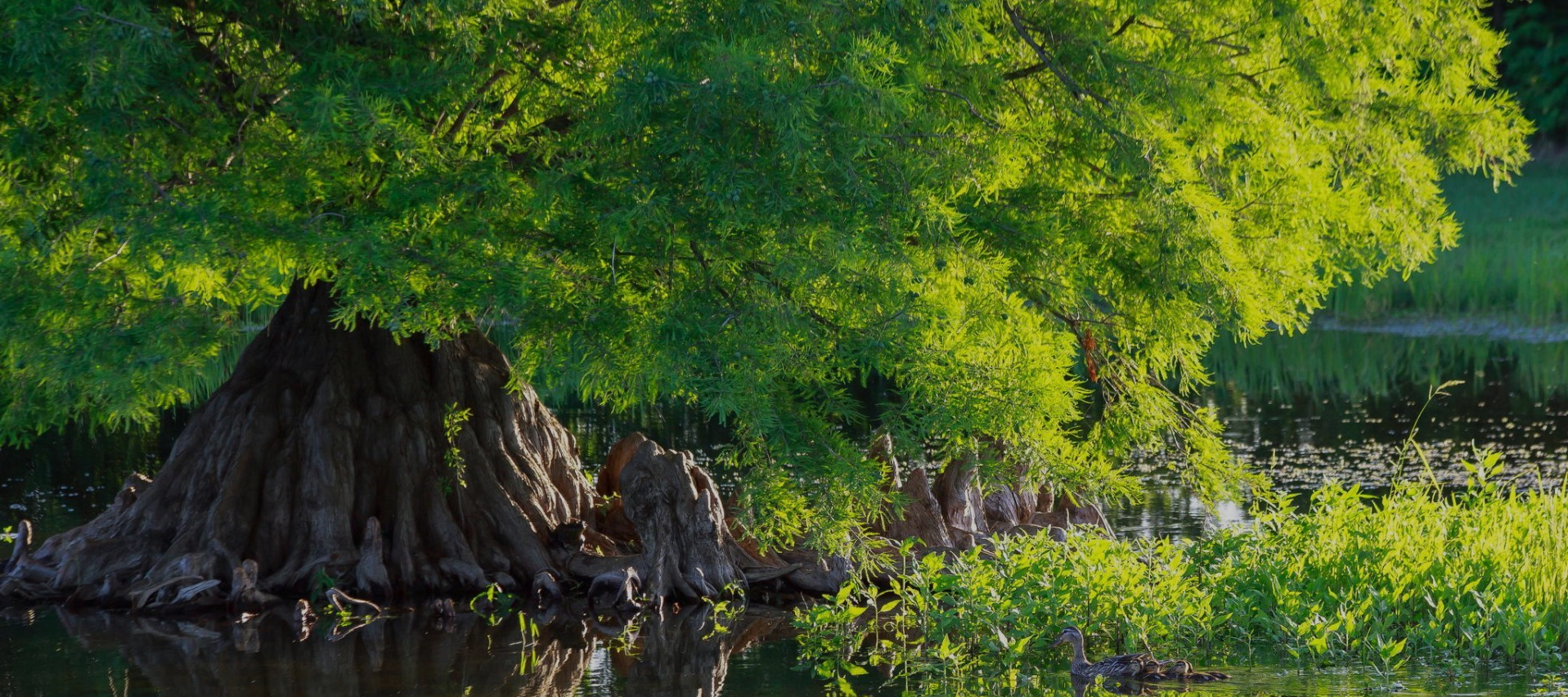What’s the deal with all the trees?
First of all, welcome to the new website for Shreveport Biblical Counseling. Thanks for visiting.
Although maybe not your most important question, probably one of the first things you noticed on our website is all the trees. What’s that about?
I’ll give you a personal answer and a biblical answer.
A Personal Answer
Personally, I grew up in central Shreveport, where there are a lot of trees. My favorite among these is the bald cypress tree (pictured throughout the website). Outside my grandfather’s house, driving by Pierre Bayou, and at Betty Virginia Park there are cypress trees. Besides these, I grew up spending a lot of time at Lake Bistineau, where cypress trees line the shore and are scattered throughout the interior of the lake. Growing up these trees didn’t mean much to me. I took them for granted.
Then I moved to Boston to attend seminary. Winter in Boston is like Narnia (not in a good way) - “always winter but never Christmas.” Winter lasts half the year. There is no color except white and gray. It gets dark mid-afternoon. The sky is overcast and the ground is either covered in dirty snow or dead grass. My second winter there, depressed and lonely, cramped inside trying to work, I happened to see a picture of Lake Bistineau in spring. The warm water was still, the cypress trees had just regrown their bright green needles, and the spanish moss hung from the branches. I was filled with a longing for home. Even more, for the first time in my life I saw the character and beauty of the place I grew up.
Within a few weeks Jess (my wife) and I had scrapped our plans to stay in Boston after graduation, believing that God was calling us back to Shreveport. And for the first time we actually wanted to return home. As GK Chesterton said, “There are two ways of getting home. One of them is to stay there. The other is to walk round the whole world till we come back to the same place.” Partly in thanks to cypress trees, we ended up coming home.
A Biblical Answer
Now for a biblical answer. Scripture is filled with trees and tree metaphors. And often the trees are by streams of water (hence SBC’s logo). Here are four such Scriptures:
Genesis 2:9-10 - “And in the middle of the garden were the tree of life and the tree of the knowledge of good and evil. Now a river flowed out of Eden to water the garden…”
Psalm 1:2-3 - “But his delight is in the Law of the LORD, and on His law he meditates day and night. He is like a tree planted by streams of water, yielding its fruit in season, whose leaf does not wither, and who prospers in all he does.”
Jeremiah 17:7-8 - “Blessed is the man who trusts in the Lord, whose trust is the Lord. He is like a tree planted by water, that sends out its roots by the stream, and does not fear when heat comes, for its leaves remain green, and is not anxious in the year of drought, for it does not cease to bear fruit.”
Revelation 22:1-2 - “Then the angel showed me the river of the water of life, bright as crystal, flowing from the throne of God and of the Lamb…also, on either side of the river, the tree of life with its twelve kinds of fruit, yielding its fruit each month. The leaves of the tree were for the healing of the nations.”
In Genesis and Revelation, the image of a tree by streams of water serves as bookends of God’s people - our origin that was lost and the hope of its restoration in the end. Psalm 1 and Jeremiah show us what life is meant to be for God’s people in between - rooted in God, feeding on his Word, drinking in his grace - so that when sin and suffering come, rather than withering or dying, we grow and even bear fruit.
I can’t think of a better metaphor for the goal of the Christian life, and therefore biblical counseling, than a tree planted by streams of water: a person in the midst of sin and suffering, rooted in the grace and truth of Jesus, flourishing.

